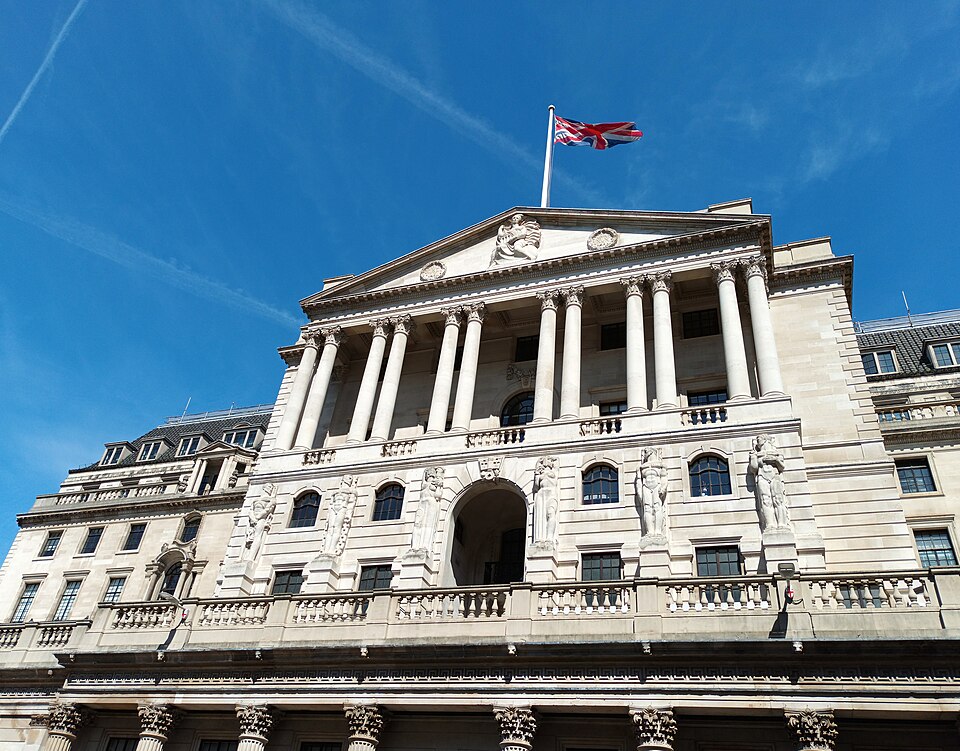UK Central Bank Eyes Stablecoins to Reduce Reliance on Banks
Bank of England (BoE) Governor Andrew Bailey suggested that stablecoins could reduce the United Kingdom’s reliance on commercial banks, signaling a potential shift in the central bank’s stance toward digital assets.
In a Wednesday article in the Financial Times, Bailey said that the current financial system combines money and credit creation through fractional reserve banking, in which banks hold a portion of deposits while lending out the rest. Fractional reserve banking is a system in which banks hold only a fraction of customer deposits in reserve and lend out the rest, thereby creating new money through credit expansion.
“Most of the assets backing commercial bank money are not risk-free: they are loans to individuals and to companies,” Bailey wrote in the FT. “The system does not have to be organised like this.“
Bailey said it’s possible to, at least partially, “separate money from credit provision.” In such a system, banks and stablecoins would coexist, while non-banks would carry out a greater portion of the credit provision role. Still, Bailey cautioned that “it is important to consider the implications of such a change thoroughly before going ahead.”

Related: UK Finance pilots tokenized sterling deposits with six major banks
Industry pushback on stablecoin limits
Bailey’s comments follow criticism of the Bank of England’s stance on stablecoins by UK-based cryptocurrency industry advocacy groups. The organizations criticized a plan by the BoE that would set individual caps for stablecoin holdings.
According to industry groups, implementing the limit would be challenging and costly, potentially leaving the UK behind other jurisdictions in the stablecoin field. Tom Duff Gordon, vice-president of international policy at Coinbase, claimed that “no other major jurisdiction has deemed it necessary to impose caps.”
Still, Bailey’s comments could imply a change of direction. He clarified that his focus is on the mass adoption of stablecoin for payments and settlements. Current stablecoins and cryptocurrencies, he said, do not yet qualify.
Related: UK to strengthen ties with US on crypto matters: Report
Stablecoins to hold Bank of England accounts
In his FT article, Bailey said the bank will publish a consultation paper on the UK’s systemic stablecoin regime in the coming months. This new regime would apply to stablecoins intended for use as money, as he explains, “for everyday payments or for settling tokenised core financial markets.”
He went as far as to note that “widely used UK stablecoins should have access to accounts at the [Bank of England] to reinforce their status as money.” This move, Bailey explained, is crucial to creating a regime that ensures the UK can reap the benefits of stablecoins while maintaining financial stability.
The remarks follow Bailey’s warning against banks issuing stablecoins in mid-July, saying the BoE should focus on tokenizing deposits instead. Ensuring that stablecoins have accounts at the central bank appears to be an indirect way for the BoE to tokenize its deposits.
Stablecoins need to evolve
Despite his openness toward stablecoins, Bailey noted that some features would “require scrutiny” and that the banking assets should be risk-free. Furthermore, he suggested that stablecoins require insurance against operational risks, such as hacks, as well as standardized terms of exchange.
He said that “it should also be possible to have innovation in the form of money” and consequently “it would therefore be wrong to be against stablecoins.” He instead recognizes their “potential in driving innovation in payment systems.”
Magazine: UK’s Orwellian AI murder prediction system, will AI take your job? AI Eye


